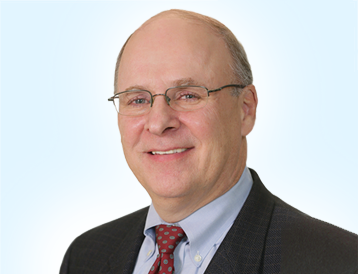When referring to cell therapy, precision in your use of terminology is crucial for technical accuracy and reporting. There are many terms that have similar meanings but should not be used interchangeably because of the confusion this may cause.

Take, for example, the terms “autologous” and “patient-specific” cell therapy. While some therapies may be both patient-specific cell therapies (PSCTs) and autologous therapies, each term has a distinct, specific meaning from the other.
Defining Autologous Cell Therapy
The core definition of autologous, in cell therapy, means that the cells used for therapy came from the patient being treated.
One example of this would be CAR (chimeric antigen receptor) T cell therapy, for which remarkable clinical results have been reported. In this therapy, immune cells called T cells are extracted from the patient. They are then genetically engineered to produce special CARs—proteins that allow T cells to recognize the proteins of tumor cells so they can be targeted by immune responses. Since the cells came from the patient, the above example of CAR-T therapy is an autologous form of cell therapy.
The antithesis of autologous cell therapy is allogeneic cell therapy. In allogeneic cell therapy, the cells used for therapy come from a donor who may or may not be related to the patient.
Defining Patient-Specific Cell Therapy
In cell therapy, the term patient-specific means just what it sounds like: the therapy was specially formulated or customized for that particular patient. Here, the cells may be derived from the patient or from a matched donor.
The opposite term to patient-specific therapy would be off-the-shelf cell therapy (OTSCT). These therapies are applicable to the majority of the population as they don’t have to be customized to a specific patient; they can be taken right “off of the shelf” after therapies for many patients are manufactured from a single batch. This becomes possible when the attributes of the cell product are such that risk of immune rejection by the patient is mitigated, large numbers of cells can be proliferated from a qualified master donor, and the cell product can be stored for a prolonged period, typically by cryo-preserving the product. Some companies are pursuing the development of allogeneic CAR T therapies with these attributes as a way to address manufacturing challenges with autologous CAR T therapies.
The Distinction
While autologous therapies and patient-specific therapies seem similar, the two terms have different connotations. One of the basic differences is that the term autologous indicates the origin of the cells used in the therapy, while the term patient-specific does not.
In another article about the difference between patient-specific cell therapy and traditional biologics, it’s stated that in PSCT, “material comes from one patient or donor, is processed, and is returned to same patient (or matched patient in case of donor source).”
All autologous therapies are patient-specific, but allogeneic therapies can be either patient-specific or they could be off-the-shelf. So, it’s possible for a therapy to be patient-specific without being autologous.
The distinction may seem largely semantic as it pertains to the manufacturing of cell therapies, whether a therapy is patient-specific or off-the-shelf is more important than whether the treatment is allogeneic or autologous. While PSCTs and OTSCTs have some similar constraints and attributes, a therapy involved in being one or the other has a significant impact on production strategies that will support a commercially-viable product, such as manufacturing cost per therapy.
For PSCT, scale out is required to increase manufacturing capacity where the patient-scale process must be efficiently repeated for each patient. For OTSCT, scale up is a key strategy to increase manufacturing capacity where a larger process that yields doses for many patients is developed to directly achieve economies of scale.
PCT is here to help guide cell therapies throughout every phase of the clinical trial process—we’ve helped manufacture over 20,000 products!

